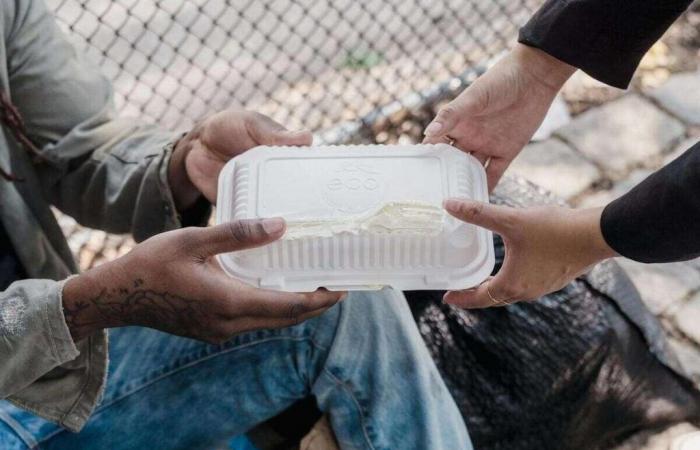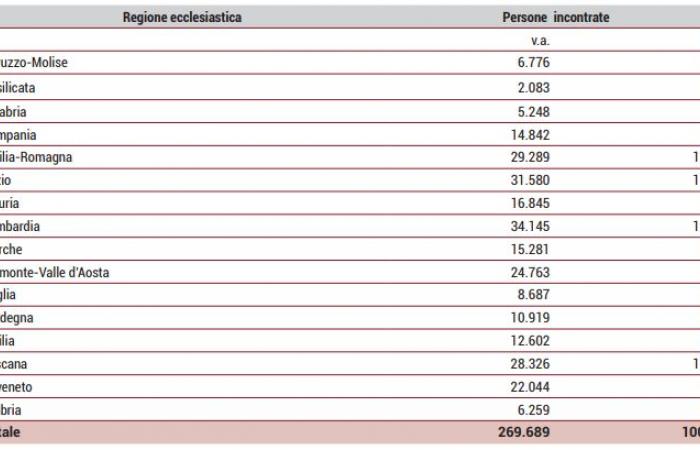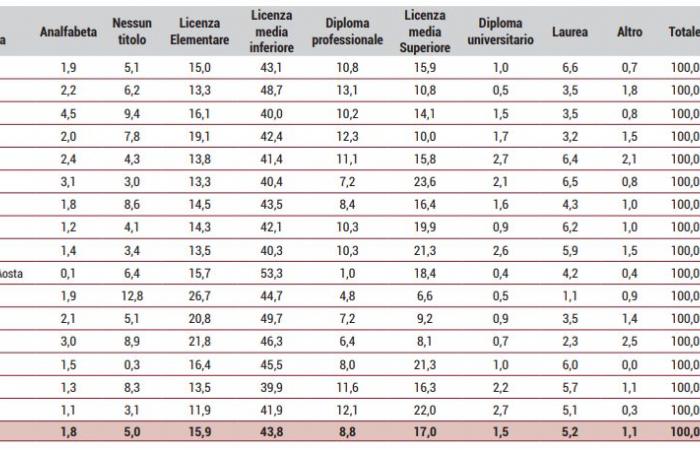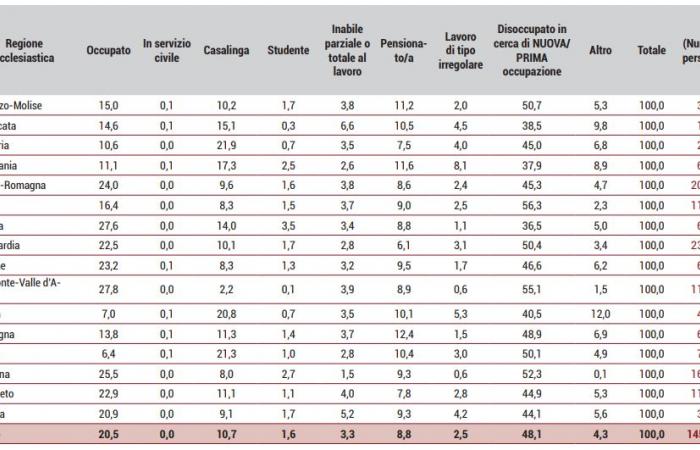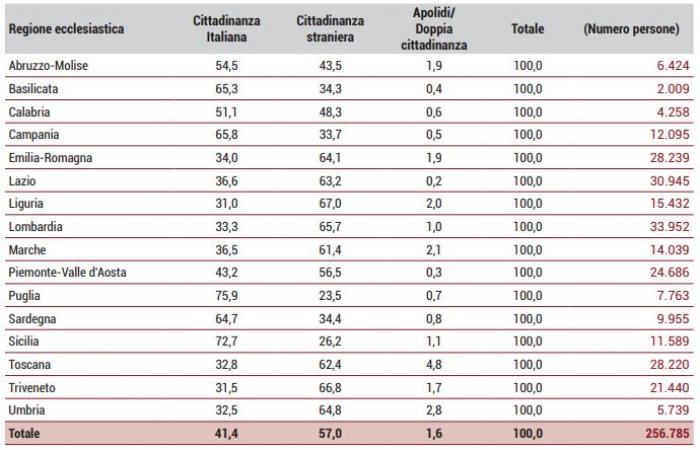In Sicilyin 2023, over 12 thousand people they have had need to contact Caritas: of these poor, 3% are in possession of a degree and 6.5% even have a Work. In short, the risk of poverty spares no one. They are the data of Caritas annual report, pastoral body of Italian Episcopal Conference which deals with helping people in difficulty. Requests for assistance in Sicily are 4.7% of the national total, which is close to 270 thousand units. THE numbers provided by the institution they draw a dramatic social picture in our country. “Poverty runs through the fabric of our society, it is a shadow that continues to grow and envelop an ever-increasing number of people“, writes the national director of Caritas Don Marco Pagniello in the presentation of the report. “A phenomenon that excludes, divides and poses a dramatic problem of justice, particularly evident in unequal accessibility, from everyone, at same opportunities and rights“. Especially in some areas of the country, including Sicily.
Read also – North-South divide: a Venetian earns 28% more than a Sicilian
Caritas, poor people in Sicily even with a degree and a job
The report provides details of theaverage Caritas user on the island. Sicily is the eleventh region in Italy for the number of people assisted, in a ranking led by Lombardy (34 thousand), Lazio (31 thousand) ed Emilia Romagna (29 thousand). It is above all those who ask for help men (55%, compared to 45% of women), and the majority of which have one or more children (77%, compared to 23% of without offspring). People with Italian citizenship (73%) are clearly superior to foreigners (26%), but there is also a minority of people with dual citizenship or stateless persons (one percent). As for their educational qualifications, the majority can count on a lower secondary school diploma (46%) or an elementary school diploma (22%). There are also people with high school diploma (8%) or professional Institute (6.5%), and as mentioned even a university degree or diploma (3%). There is no shortage of users completely without qualifications (9%) or totally illiterate (3%). The latter, as can be seen, are the same share as graduates. Sign the risk of poverty is transversal.
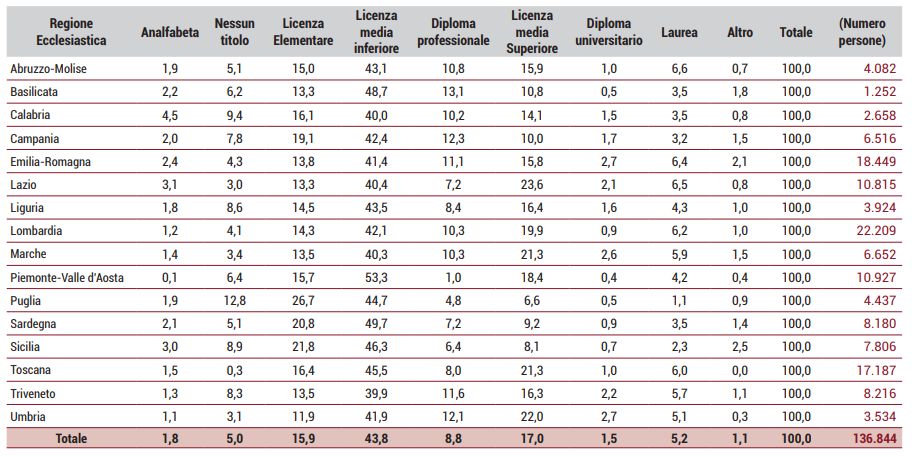

Read also – There is a “health poverty” alarm in the South. But Sicily does better than Piedmont
Increasingly widespread phenomenon of poor workers
Furthermore, this is also demonstrated by the employment data. Predictably, the largest share of those who turn to Caritas is made up of unemployed people looking for a new or first job (50%). However, the number of is not negligible “housewife” people (21%), pensioners (10%) or even have a job (6.5%). Also noteworthy are the shares of irregular (3%), unable to work (3%) e students (1%). Numbers which according to Caritas confirm “the fragility of the labor market, and which can be said to be the basis of in work poverty and of the phenomenon of working poor“. A fragility that depends on many factors, observes the diocesan body, starting from the “wide spread of occupations a low remuneration and low qualification, especially in the tertiary sector”. But he also weighs “the failure contract renewal and the proliferation of Ccnl“, without forgetting “the widespread precariousness and the strong incidence of irregular jobs and non-standard contracts, especially among young“. All elements which, according to the authors of the report, contribute to aggravate the situation.
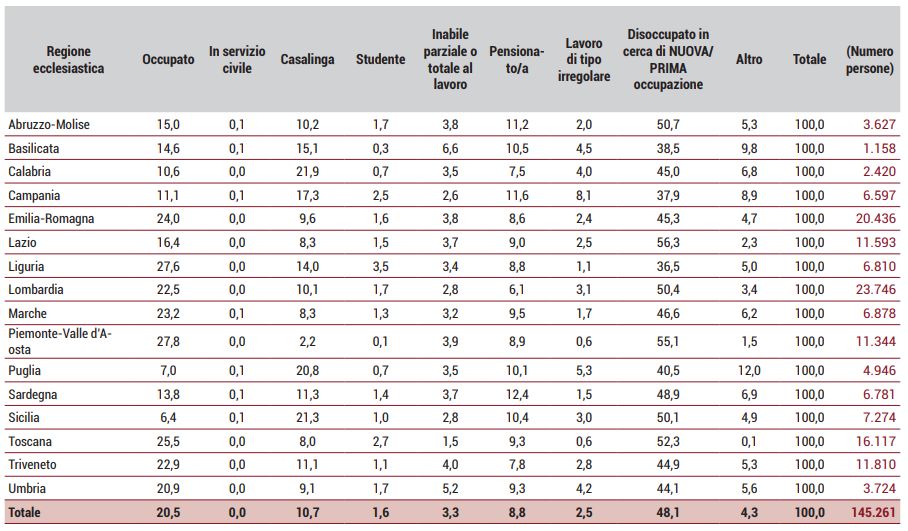

Read also – Poverty and inequalities: well-being is still far away in Sicily
The numbers of Caritas of Catania
One of the most Caritas active in Sicily is that of Catania, which recently celebrated 50 years of activity. “The latest survey of Caritas services, released last May, highlighted in a structured way the economic and social difficulties of the city: plus 119 thousand interventions carried out between 2019 and 2023, going from 237 thousand to 356 thousand, marking an increase of 34%”. One of the most serious years since the beginning of the activities of Caritas Catania, way back in 1974. “In fifty years, poverty has increased in the connotations of more subtle poverty, invisible, ‘digital'”, the director of the Etna office said in a press conference, Don Nuccio Puglisi. Among the services that Caritas of Catania offers are “listening, breakfast, dinner, clothing, products for children, toilets and change of clothing”. Without forgetting “the welcome for women victims of violence against minors, consultancy dedicated to processing bureaucratic procedures, financial support for payment of utilities, the legal and psychological consultancy activity and the banking mediation through microcredit“.
Read also – Unicredit and Caritas Catania together for women victims of violence
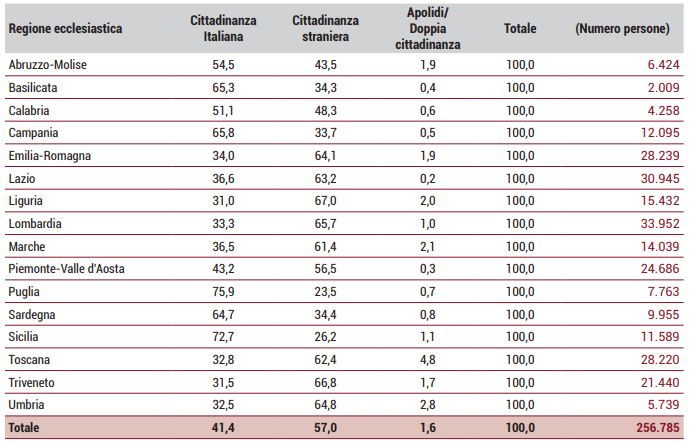

Long wave effect of the pandemic and war
However dramatic, for Caritas the numbers of the poor remain partial, in Sicily as in Italy. THE 270 thousand users “can be assimilated to as many nuclei“, given that those who choose to ask for help “always respond to family needs“. A first multiplier factor which, however, according to experts, is not enough to clarify theextent of poverty in the Italian social fabric. “It is, however, one underestimation of requests for helpbecause they refer only to services online with data collection“. There are also those who are not “photographed” by the relationship, in short. A situation that is affected by “the effect of long wave of the pandemic crisis“, to which in recent years have been added “the repercussions of wars in Europe and the Middle East and by the increase in consumer prices”. Hence the need to legislative interventions, that Caritas is requesting from the central government. For the institution it is necessary to “ensure that the defended requests are translated into standards, laws and services“, which in addition to limiting poverty aim “to construction of truly inclusive societies“.

